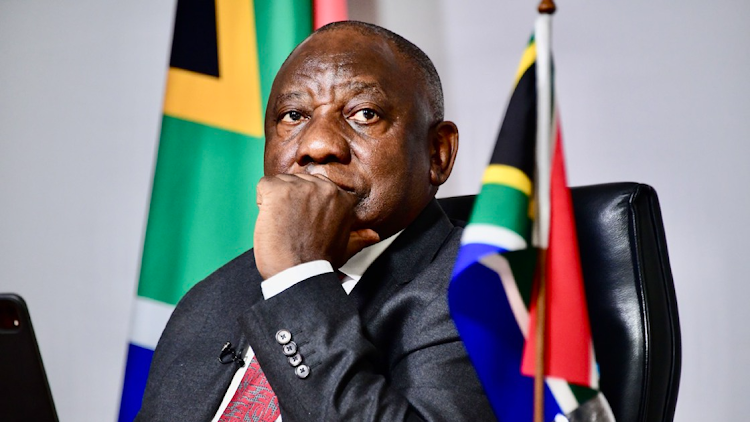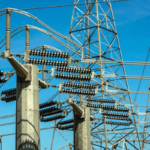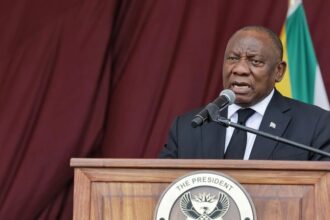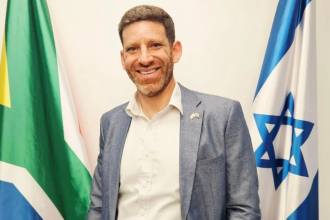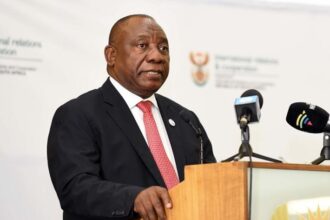South African President Cyril Ramaphosa has called on all government departments to settle outstanding TV licence fees owed to the South African Broadcasting Corporation (SABC), with arrears across national and provincial departments and municipalities reaching nearly R35 million. The demand comes as the SABC grapples with ongoing financial struggles, exacerbated by high levels of TV licence avoidance among the general public and a stagnant revenue stream.
Government Arrears and TV Licence Crisis
The call for government compliance was reiterated by Vincent Magwenya, spokesperson for the Presidency, who emphasized the SABC’s critical role as a public broadcaster. Magwenya stated, “The SABC is an important institution of our democracy. It needs all the funding that is required to fulfil its primary constitutional duty.” He confirmed that Ramaphosa expects the National Treasury to take swift action to recover the unpaid fees.
This move aligns with efforts by Minister of Communications and Digital Technologies, Solly Malatsi, who recently urged Deputy President Paul Mashatile to encourage non-compliant departments to meet their legal obligations. “The culture of non-payment of public services such as TV licences is unacceptable,” Malatsi said, stressing the government’s role as a societal leader in upholding compliance and setting a positive example.
While the government’s debt has decreased from R56 million in 2023, the remaining R35 million owed by various departments highlights ongoing challenges. Malatsi noted that bringing government departments into compliance would significantly alleviate the financial burden on the SABC.
Growing TV Licence Evasion and Financial Impact on the SABC
Non-payment of TV licences has hit alarming levels in South Africa, contributing significantly to the SABC’s financial distress. According to the broadcaster’s chief financial officer Yolanda van Biljon, the SABC collected only R726 million of the R5 billion billed in TV licence fees for the 2023/24 fiscal year. Over recent years, the evasion rate has soared:
- 2019: 69%
- 2020: 81%
- 2021: 82%
- 2022: 82%
- 2023: 84%
- 2024: 86%
Financial Losses and Calls for a New Funding Model
The SABC, which has been running at a loss since the 2014/15 financial year, has seen modest improvements in recent financial performance. For the 2023/24 period, it managed to reduce its losses before interest and tax to R192 million, a notable decrease from the R827 million deficit recorded the year prior. However, after factoring in interest and tax, the SABC anticipates a post-tax loss of approximately R590 million, reflecting ongoing financial strain.
The rising deficit has led to intensified calls for a revision of the SABC’s funding model, with Khusela Sangoni, chairperson of the Parliamentary Portfolio Committee on Communications and Digital Technologies, urging the broadcaster to explore alternatives. Sangoni stressed the need for the SABC to present viable funding options, indicating that legislative adjustments might be required to stabilize the broadcaster’s finances.
A draft SABC Bill currently under review proposes that a revised funding model could be introduced within three years following its enactment. This bill has fueled discussions on how best to support the public broadcaster’s sustainability in a challenging economic climate.
SABC’s Struggle for Financial Stability
Despite signs of improvement, the SABC’s fiscal stability remains precarious, with financial losses persisting year after year. The SABC reduced its total losses in 2023/24 to a narrower margin than before, but the broadcaster acknowledges that structural changes in funding are critical to its long-term viability. Magwenya underscored that for the SABC to serve its public mandate effectively, it must receive consistent support, including payment of TV licence fees owed by both the government and the general public.
The increasing rate of non-compliance poses a significant threat to the SABC’s operational capacity. Without a comprehensive funding model overhaul, the broadcaster risks further financial decline. Efforts from the President’s office, the Communications Minister, and Parliament reflect a concerted push towards reform, aiming to ensure that the SABC continues to fulfill its role as South Africa’s primary source of public news and information.

